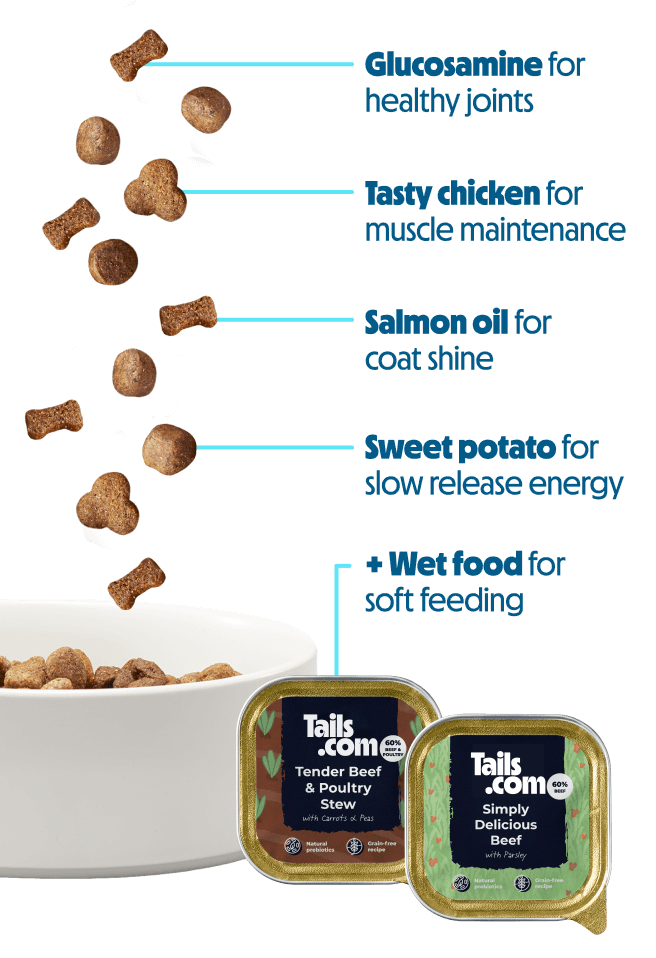60% off your first box + 30% off your second
100% tailored dog food

High-quality ingredients

Zero artificial flavours or colours

We do senior dog food differently
You want the very best for your loyal companion. So do we. That’s why we create 100% tailored meals for their age, breed, energy level and health needs.
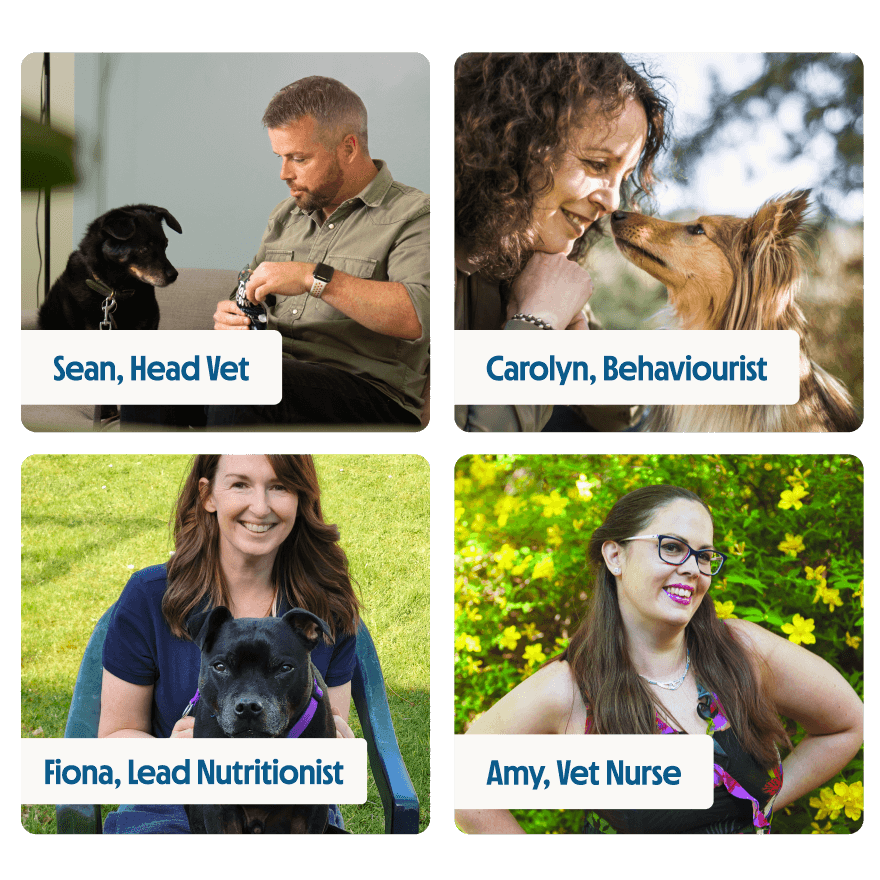
Developed by the experts
Thanks to our team of vets and nutritionists, our senior dog food is crafted using the latest research in canine health and longevity. Designed to keep them happy, healthy, and making memories by your side.
What makes Tails.com the best dog food for senior dogs?

To keep them enjoying those walkies

Thanks to their personalised portions
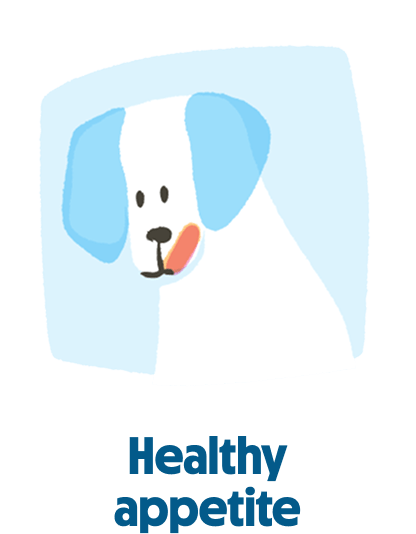
Dry and wet food with tasty, high-quality proteins

Tailored to their unique health needs
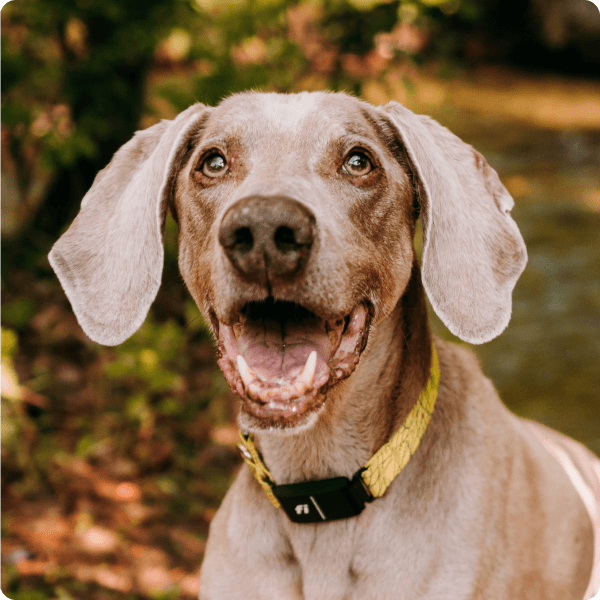
Thinking ahead? So are we
Some dog foods jump from ‘adult’ to ‘senior’ in a single bound. Our unique Adaptive Nutrition evolves with your dog, fine-tuning their food as they age – it’s all part of your plan.
Make the switch in 4 easy steps
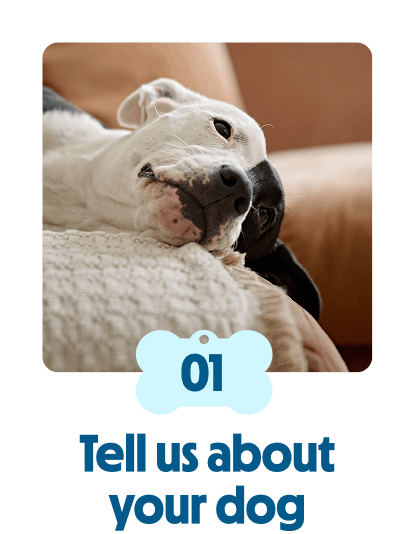
From their breed to their health goals
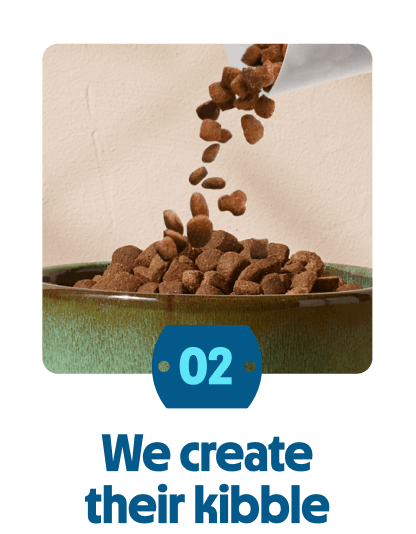
Crafted by our experts, tailored to your dog

Add wet dog food and anything else they need

Free, flexible delivery - update or cancel any time
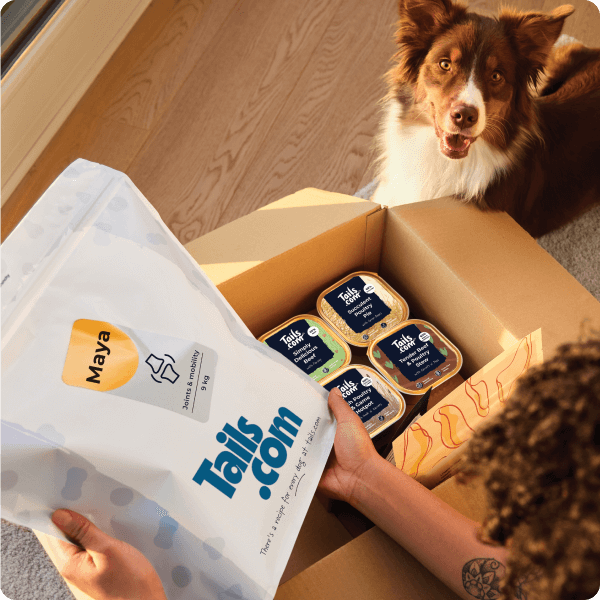
The right nutrition at the right price
Your senior’s monthly price is based on their unique needs and the meal plan you create. So you can build a subscription that works perfectly for your dog and your wallet.
Feeding 84,000 senior dogs (and counting)
Don’t take our word for it
Hear what the pack have to say:
Keeps them in great shape
“She really enjoys the taste & it's great for her weight management as she's prone to getting a little chonky!”

Tailored to their tastebuds
“My senior dog absolutely loves it, to the point of standing on her hind legs to reach the bowl in my hand!”

Recommended senior dog food
“Our senior, fussy dog is eating properly for the first time in 14 years! Highly recommend.”

Keeps them in great shape
“She really enjoys the taste and its great for her weight management as she's prone to getting a little chonky!”

Tailored to their tastebuds
“My senior dog absolutely loves it, to the point of standing on her hind legs to reach the bowl in my hand!”

Recommended senior dog food
“Our senior, fussy dog is eating properly for the first time in 14 years! Highly recommend.”

FAQs
Senior dog food is specially formulated to support the unique needs of ageing pups. Think of it this way: as dogs get older, they often become a little less active. Because of this, senior diets typically contain less fat and fewer total calories than adult foods. This helps prevent unwanted weight gain as their metabolism slows down. Beyond just calories, senior formulas often include functional ingredients to help with common age-related concerns. You'll frequently find higher levels of joint supplements to support mobility, and sometimes even added taurine to promote heart health. And since older dogs might be eating a less calorie-dense diet, senior foods often have slightly higher mineral levels to make sure they're still getting all the essential nutrients they need. Ultimately, while adult food won't harm your senior dog, a senior-specific diet is usually better tailored to keep them thriving in their golden years.
As a rough guide, most dogs are classed as seniors when they reach around 7 years old, but it really depends on your dog's breed and individual needs. Giant breeds might show signs of ageing earlier, while some small or toy breeds can be spry well into their teens. There's no strict rule about when to switch to a senior dog food. However, senior formulas are typically lower in fat and calories, which can be ideal if your dog starts to slow down or gain a little weight. Many senior diets also include higher levels of joint supplements, which is a great bonus considering that 80% of dogs over eight years old show signs of osteoarthritis. Here at Tails.com, we take the guesswork out of feeding your senior dog. Designed by vets and nutritionists, our unique Adaptive Nutrition system calculates the perfect time to gradually transition your dog, based on their specific breed, age, weight and health goals. So you can relax knowing they have everything they need, exactly when they need it.
Senior dogs can eat either wet or dry food or a mix of both; it’s the nutrients and ingredients that are crucial, rather than the type of food. The most important consideration is to choose a nutritionally complete, senior-specific diet. This means it contains all the essential nutrients, vitamins, and minerals your dog needs in this stage of life, in just the right amounts to keep them healthy and happy. That said, some senior pups might find wet food particularly appealing. If they are a bit underweight, a picky eater or dealing with specific health conditions, the meaty flavour and soft texture of wet food (especially if warmed up) can encourage them to eat more. It's also a fantastic choice for dogs with dental problems or missing teeth, as it's much easier to manage. As an alternative, you can always soak dry food in warm water to soften it up.
In general, senior food is not specifically softer than adult food. However, for senior dogs that require a softer food, you can either soak their dry food with warm water or feed a wet food diet.
Our nutrition team is always keeping on top of the latest developments in research on dog health and wellbeing. Until recently, it was thought that senior dogs required a lower protein diet than adult dogs. However, it’s now been shown that moderate protein levels are key for older pups to help them maintain their muscle mass and manage their appetite effectively. While there are a few specific health conditions, like kidney issues, that might require a restricted protein diet, if your senior dog is otherwise healthy, there's no need to limit their protein intake.
There's no evidence that grain-free food is inherently better or worse for older dogs compared to a grain-based diet. Grain-free foods aren't healthier or more "natural” either. They're simply a different choice that can be ideal for dogs with a diagnosed grain allergy or intolerance, or even for those who just prefer the taste of grain-free food. Ultimately, the best food for your senior dog, whether it contains grains or not, is one that is nutritionally complete, supports this unique life stage and provides all the nutrients they need to thrive.
Senior-specific diets tend to have fewer calories than adult formulas. This is because many older pups tend to be less active and can be more prone to gaining weight. That said, every dog is unique. Some senior dogs are still full of energy and very active, and others might have health conditions that require more calories. Some might only want to eat small amounts, so will require more calorie-dense meals. If you're ever concerned about whether your senior dog is getting the right nutrition, don't hesitate to reach out. Our nutrition specialists in customer service are always here to help and offer personalised advice.
One of the major causes of bad breath in dogs is dental issues or diseases. Dental disease can be very painful for dogs, so it’s important to visit your vet to get to the root cause of the issue and perhaps look into pain management. To help your dog feel more comfortable, soft food, such as wet food or soaked dry food may be easier for them to manage.
Most dogs are happy with two meals a day, but some senior pups, particularly if their appetite changes or their teeth are sensitive, might prefer three or four smaller meals throughout the day. This can make it less overwhelming and easier for them to digest. On the other hand, some senior dogs might experience a decrease in appetite and may actually prefer to eat just once a day. Every dog is unique, so it's a bit of a trial-and-error process to discover what feeding schedule suits your pup. Listen to their cues, and you'll find the perfect rhythm together. If you’re worried, you can always reach out to our nutrition team for help and advice.
Yes, when creating your dog’s profile, you can let us know about any digestive issues or ingredients that don’t agree with them. Our nutrition team will then craft a tailored kibble blend designed to support sensitive stomachs. This might mean avoiding certain ingredients entirely or adding gut-friendly nutrients like prebiotics to help promote healthy digestion and overall wellbeing.
Sign up with 60% off your first box + 30% off your second


